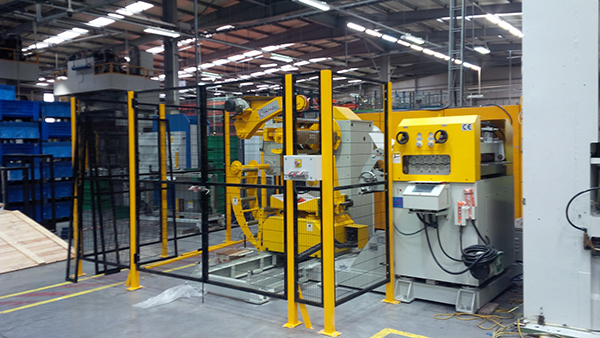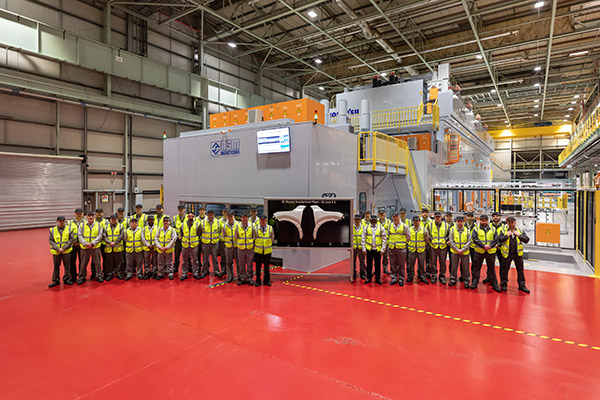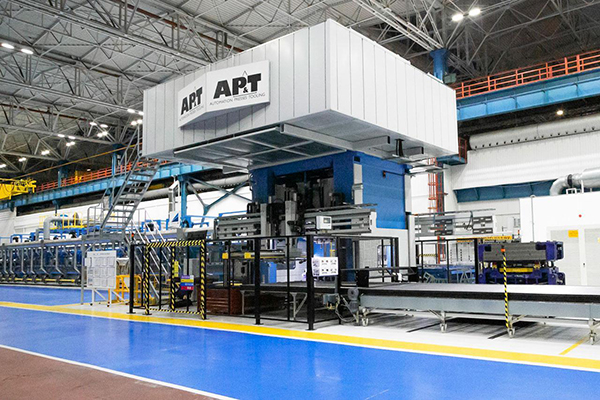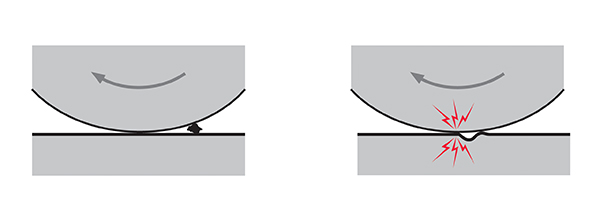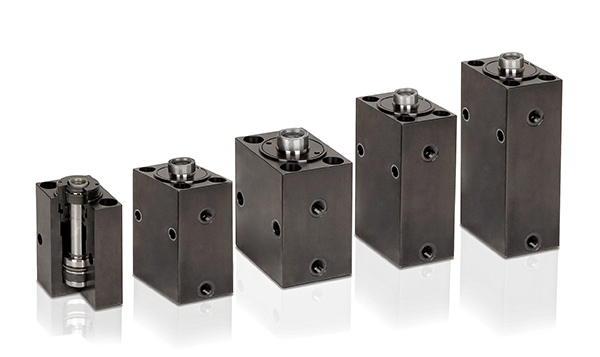A specialist in hot and cold-forming equipment, Rhodes Interform and its sister company Atkin Automation, recently won a contract to supply and install a new coil-processing line for a major northeast heat-shield manufacturer. The machine is used to produce blanked parts from single-pitch tools, or formed parts from progressive tooling in the automotive industry.

Following technical meetings between the client and Rhodes Interform engineers, a solution was proposed and accepted which involved the supply of a unit from sister company Atkin Automation’s Taiwanese partner Shung-Dar. The unit selected was a space-saving three-in-one NC servo-feeder, straightener, decoiler and coil cart with a capacity of 3000 kg by 800 mm. The unit is rated at 1.5 mm at full width, and comes with a Siemens PLC. Notably, a novel pilot release feature ensures optimum press performance by relieving built-up stress and binding of the strip through the feed caused by misalignment or camber, as well as alleviating ‘walking’ problems.
“This project was a great example of two business divisions working to generate an effective solution for the customer,” says Geoff Barker, sales manager for Atkin Automation. “We have extensive experience in providing products and services to heat-shield manufacturers and the coil-processing industry in general, and the success of the project is testament to the skills of our technical team.”
Features of the unit include: hydraulic coil cart, hydraulic mandrel expansion, threading supports, motorised feed height adjustment, programmable feed lengths with memory storage, and pilot release. To ensure operator safety and conformity to CE standards, Rhodes Interform installed the unit with fully interlocked perimeter fencing.
For further information www.grouprhodes.co.uk






